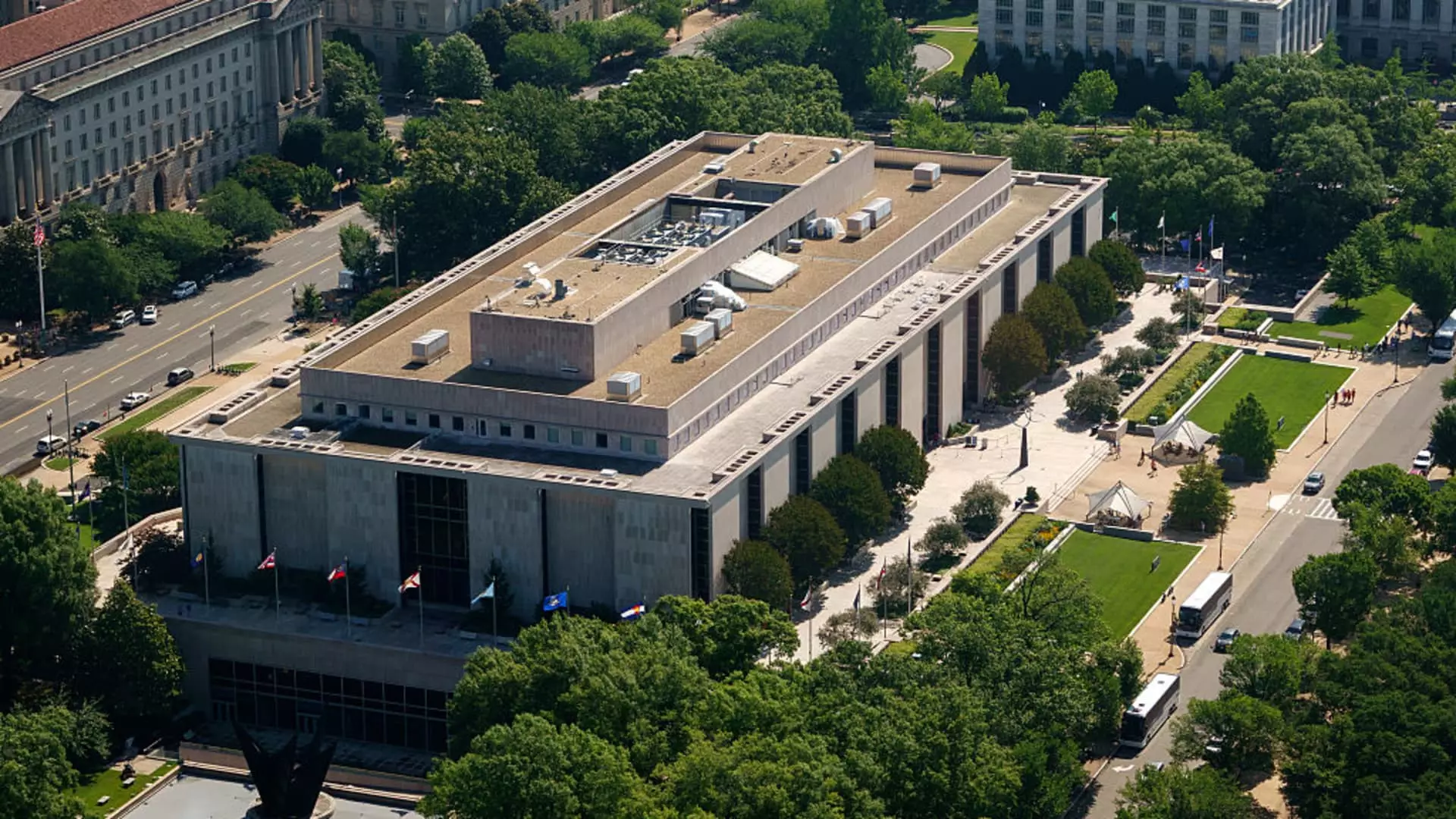In recent months, the chaos surrounding President Donald Trump’s efforts to purge institutions of what he labels “woke” content has escalated into a full-blown assault on America’s cultural institutions. His latest directive to craft legal strategies similar to those used to pressure universities reveals a troubling shift in his approach to shaping the national narrative. By targeting museums, which have traditionally been guardians of history and identity, Trump exposes an alarming desire to rewrite or sanitize the story of the nation based on partisan bias.
This move is far more than a superficial attempt to morph exhibits—it’s a dangerous power grab that aims to police the ideological purity of our shared history. The rhetoric employed by Trump, painting museums as hotbeds of anti-American sentiment, is rooted in a combative desire to control what Americans see and hear about their past. His narrative implies that museums are fundamentally compromised by “woke” ideology, which he equates with unpatriotic negativity and ungratefulness. Such framing dismisses critical discussions about our history, especially those that involve acknowledging uncomfortable truths like slavery or systemic discrimination — all in favor of a curated, sanitized version of patriotism.
This effort reveals a broader ideological obsession: the belief that American history must be reframed to bolster nationalist pride at the expense of candor. It is a form of cultural authoritarianism disguised as patriotism, where the government seeks to influence what is presented as national fact and narrative. This ideological purging undermines the very foundation of academic and cultural freedom, threatening to turn museums into propaganda outlets that serve a nationalist agenda.
The Threat to Academic and Cultural Independence
The Trump administration’s targeting of the Smithsonian, the venerable institution that encapsulates the diversity and complexity of American history, represents an assault on intellectual independence. By threatening to withhold funding and invoke legal pressure, the administration seeks to compel these institutions to obey a narrowly defined ideological standard. The use of federal funds—a significant portion of most museums’ budgets—becomes a pawn in this ideological war.
This is not just about superficial content; it’s about controlling the narrative. Frankly, the administration’s approach sets a dangerous precedent: that the government has the right to dictate what constitutes acceptable historical discourse. When museums are pressured or threatened with funding cuts, their ability to function as unbiased custodians of history is compromised. This move echoes the recent actions against universities, where funding threats have been used to influence academic research and teaching—those same tactics are now threatening cultural memory.
By framing these institutions as “out of control,” Trump casts doubt on any institution that offers a differing perspective, framing disagreement as unpatriotic or corrupt. It’s an intellectually dishonest tactic that seeks to diminish the legitimacy of any critique of American history that isn’t aligned with a nationalistic narrative. The risk here is the erosion of a pluralistic approach to history, leaving only sanitized, glossy stories that serve the political needs of those in power.
The Ideological Clash Behind the Cultural Crusade
What lies beneath Trump’s crusade against what he calls “woke” content is a fundamental cultural divide. On one side are those who advocate for a comprehensive and truthful recounting of American history, including its darker chapters. On the other are political figures like Trump, who see these truths as liabilities or threats to national pride. The president’s obsession with eliminating “woke” content aligns with a broader, often reactionary effort to curb progressive narratives that challenge the status quo.
This ideological battle is about control—not just of public discourse but of national identity itself. Trump’s approach suggests that a patriotic nation must have a curated, idyllic view of its past, one devoid of uncomfortable realities. It’s a form of historical amnesia that risks long-term damage to America’s cultural fabric by ignoring or distorting the complexities that have shaped the nation.
Furthermore, this attack on museums and educational institutions reveals a disdain not just for certain narratives but for intellectual independence and diversity of thought. It’s a bid to silence dissenting voices and reinforce a unifying, yet highly selective, version of American greatness. The danger is that such efforts could permanently reshape the cultural landscape, leaving future generations with a skewed or incomplete understanding of their heritage.
The Dangerous Path Forward
President Trump’s recent rhetoric and actions concerning museums underscore a troubling trend—not just in policymaking but in the broader cultural context. The use of presidential power to dismiss, control, or threaten institutions that are vital to the national dialogue is unprecedented for a leader claiming to uphold democratic values. It underscores a shift toward authoritarian tactics aimed at centralizing ideological control under the guise of patriotism.
By weaponizing funding and legal authority, the Trump administration risks creating a chilling effect that may suppress honest discussions of America’s history and identity. The symbolic importance of museums cannot be overstated; they are markets of memory, shaping how a nation perceives itself. When their narratives are manipulated or censored, the consequences extend beyond politics—they threaten to alter the very soul of the nation.
This ongoing struggle reveals an inherent weakness in liberal center-wing values: the delicate balance between preserving national pride and embracing the truth, even when it’s uncomfortable. Trump’s approach refuses this balance, opting instead for a corrosive form of ideological conformity. It’s a dangerous game, one that risks turning America’s cultural institutions into tools of political propaganda, eroding the very foundations of free inquiry and honest reflection.

